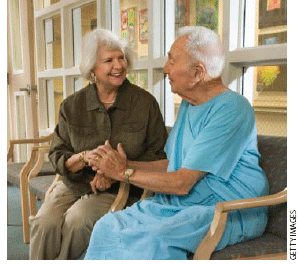Older, timid patients who survive cancer urge other cancer patients to become bolder advocates for their own care, according to a study published in the Journal of American Geriatric Society (2009; 57[S2]:s269-s271).
Eva Kahana, PhD, and colleagues from the Elderly Care Research Center at Case Western Reserve conducted a longitudinal study to determine what older people do to weather chronic illnesses and frailties in their later years, as well as what they do to age successfully.
The study involved cancer survivors who underwent in-depth interviews about their cancer experience during the 17th year of the study. Participants were on average 79 years old, and the majority of them were married women.
Researchers found that although participants had not been advocates for themselves, later in life they became advocates for others. Dr Kahana reported that survivors suggested their peers with cancer get second opinions, check their physician’s background, maintain a positive mental attitude, join support groups, and learn more about treatment options before taking their doctor’s advice. Very few of these individuals, however, had actually practiced these strategies during their own illness. Instead, they coped by relying on physicians and family members.
The researchers suggest that contrary to the common notion of a uninterested or disempowered elderly patient, “a transition may be occurring [in this group] from passive to a more active or even activist orientation due to the illness experience.” ONA
